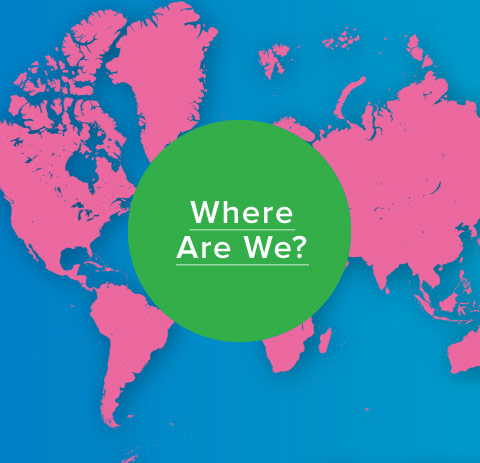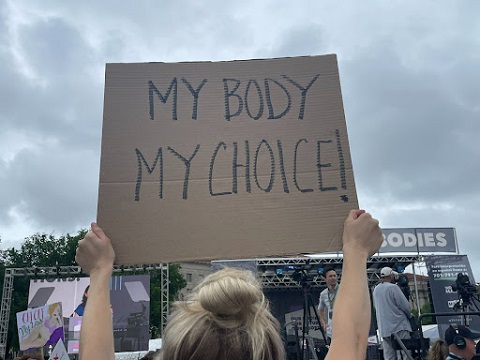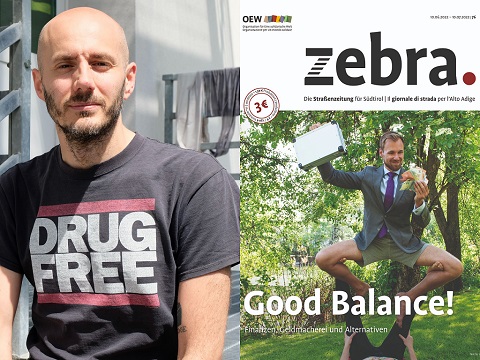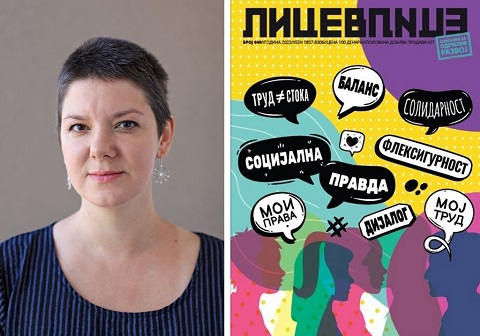Those familiar with street papers – people who buy them, people who read them, people who make them, people who support them – know what a street paper is: an enterprising solution to poverty, a sustainable income provider to those unable to find a job, an empowerment tool for those who are vulnerable or marginalised, on the fringes of society.
But it is the people who sell these magazines and newspapers – on the streets, outside shops, in train stations, at busy intersections – who know what a street paper truly means, what it represents.
The International Network of Street Papers asked these people – variously called sellers, salespeople, vendors, ‘Spokespersons for Culture’, camelots, Verkäufer*innen – what a street paper is to them, personally. Responses were varied and came from a vast geographical span, highlighting the diversity of people and ways of thinking amongst this network. In this third instalment, people from Greece to Australia have their say.
Fotis Adamopoulos, 67, sells Shedia in Greece
“Shedia was rediscovery for me. I regained my self-confidence and dignity and became connected again with society. When I sold my first magazine, I felt like the happiest person in the world. It was my first money for a very long time. The street paper – its people, its readers – is my family. They surround me with so much love.”
![Shedia's Fotis Adamopoulos. [Courtesy of Shedia]](https://hub.insp.ngo/wp-content/uploads/2021/12/INSP_Holiday-feature-2021_17.jpg)
Marian sells The Big Issue Australia in Melbourne, Australia
“Selling the street paper, I have felt myself open up and become more flexible. The dynamics at The Big Issue are very open, friendly and supportive. The people are so warm and it’s really lovely to go there. It’s set up to help people and they do just that. It’s also good getting to know the other vendors and know we’re all part of something. There’s a real sense of community which is very nourishing and helpful. It’s also a means to generate a meaningful income, which offers potential for me to make positive changes in my life, to overcome fears, to take up old interests and explore new ones. It allows me to engage and see people, and be part of the life of the city. It also allows me to understand the struggles of life and how we all need to be seen and heard. Everybody has a story behind them.”
![The Big Issue Australia's Marian. [Courtesy of The Big Issue Australia]](https://hub.insp.ngo/wp-content/uploads/2021/12/INSP_Holiday-feature-2021_18.jpg)
Keith D. sells The Contributor in Nashville, Tennessee, USA
“The street paper is my livelihood. It pays my rent, it pays my utilities, it pays my…everything. This is my job, this is my business: I enjoy doing it and, if it wasn’t for this, I have no idea what I’d be doing. It’s now been ten years [selling The Contributor]. I was gonna quit doing it eight years ago – I had a job lined up and everything. Then I got hit by a car, smashed both my shoulders, shattered, and, you know, metal everywhere in my leg meant I couldn’t do the job. In fact, it was hard to do anything for a long time. I was in the hospital for 55 days. So, I’m really glad [I have the street paper].”
![The Contributor's Keith D. [Courtesy of The Contributor]](https://hub.insp.ngo/wp-content/uploads/2021/12/INSP_Holiday-feature-2021_19.jpg)
Joe Taylor, 46, sells Toledo Streets in Toledo, Ohio, USA
“A street paper is a God send. It’s a chance to get out and meet new people, a chance to make an income. It’s a lifeline for people that have no other access to things that they can really use.”
![Toledo Streets' Joe Taylor. [Courtesy of Toledo Streets]](https://hub.insp.ngo/wp-content/uploads/2021/12/INSP_Holiday-feature-2021_20.jpg)
Marcus Vinicius sells Traços in Brasília, Brazil
“Article 1 of the Universal Declaration of Human Rights says that: ‘All human beings are born free and equal in dignity and rights’. However, these rights end up being denied in several places. Therefore, it is important to value the role of street papers in the reintegration of vulnerable populations so that they have access to an education, income, and social and psychological assistance. I have personally witnessed how a street paper – Traços – has transformed my life. Only in this way will we be able to achieve a more equal and dignified society for all.”
![Traços' Marcus Vinicius. [Credit: Thaís Mallon]](https://hub.insp.ngo/wp-content/uploads/2021/12/INSP_Holiday-feature-2021_21.jpg)




















